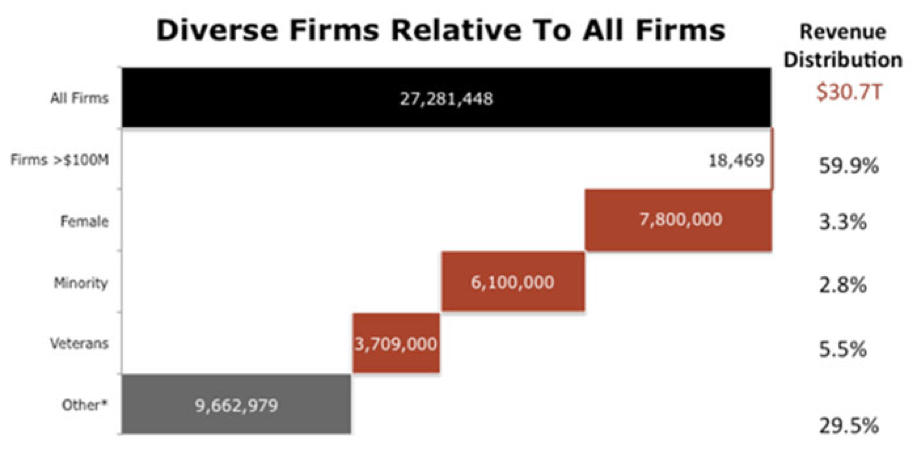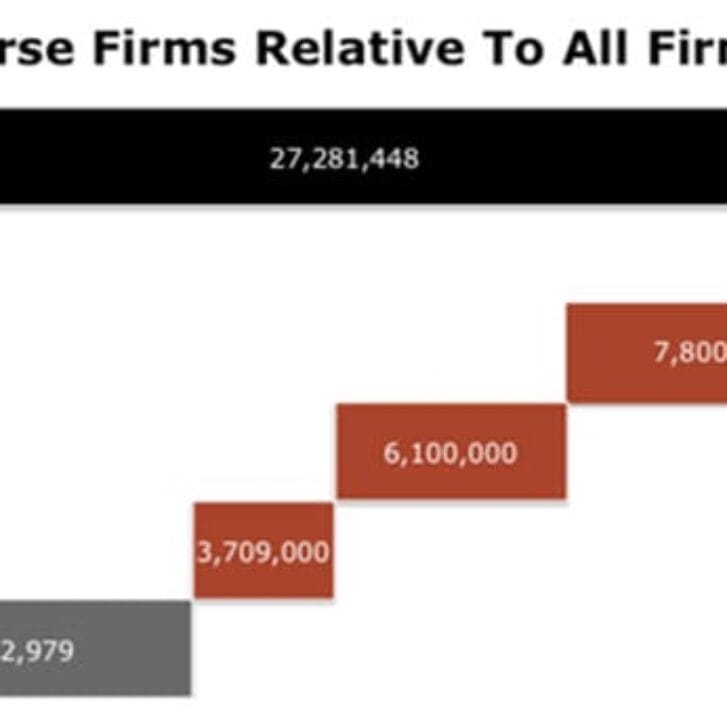We’ve all heard the expression “doing well by doing good.” There’s a growing consensus—and a large body of supporting data—that, more often than not, doing the socially responsible thing is also the wisest decision from a long-term business perspective.
In previous blog posts, we focused on some concrete business reasons why supplier diversity has become an increasingly important component of the mainstream business agenda. As we discussed, world-class procurement programs need to create a diverse supplier base if they want to be perceived as innovative, responsive, and cost-effective.
STRENGTH THROUGH DIVERSITY
Here’s one more reason to add to the list: By including a wider range of supplier types in your supply chain, you can create a more innovative, forward-thinking and resilient supplier mix.
Consider these statistics:
- A whopping 99.9% of all U.S. firms are in the small business category.
- Women- and minority-owned companies represent more than 50% of the total small business population.
- More than half of the American workforce of about 142 million people is employed by small businesses.
- Small businesses have generated more than 65% of new jobs over the past 20 years.
- The number of minority-owned businesses grew nearly 50% between 2002 and 2007 – almost three times the rate of all firms in the U.S.
More companies than ever before are seeking out competitive, top-quality diverse suppliers they can plug into their supply chains to meet their goals. To find the best mix of minority-owned businesses that meet your supplier diversity needs as well as your product and service requirements, you’ll need to perform due diligence up front.
It bears repeating that supplier diversity should never mean sacrificing quality. Rather, the minority-owned status of any business in your supply chain should be considered just an added benefit to its unique value proposition.
THIS CHART SAYS IT ALL

The chart above tells the real story of why supplier diversity matters. Nearly 60% of the more than $30 trillion in annual revenue generated by U.S. firms is produced by a small group that represents less than one-tenth of 1% of the national business population. Although minority and female-owned firms represent more than 50% of today’s total U.S. business population, they generate just over 6% of total revenue.
As one of the fastest-growing sectors of the small business sector, minority-owned businesses in particular demand our attention. Together, they generate over $500 billion in sales each year, comprise 21.3% of all non-farm businesses in the country, and provide 5% of total employment.
Opening up your procurement process to include more minority- and women-owned businesses is more than just the right thing to do. It’s also a savvy and far-sighted business move that will help position your organization for long-term success by strengthening your supply chain.


























